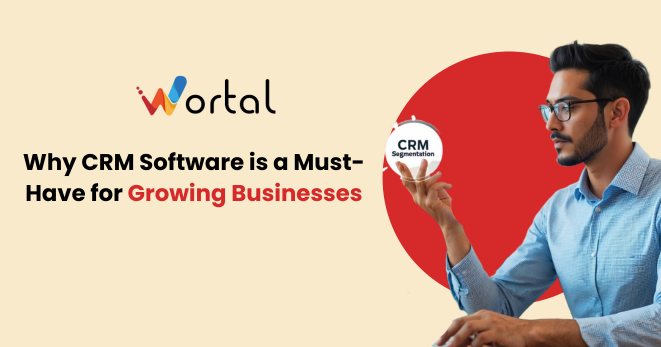
As businesses grow, managing customer relationships becomes more complex. Companies must track interactions, maintain customer data, and ensure seamless communication across departments. Without an efficient system, businesses risk losing valuable leads, missing follow-ups, and providing inconsistent customer service. This is where Customer Relationship Management (CRM) software becomes essential.
Centralized Customer Data Management
A growing business accumulates vast amounts of customer information, including contact details, purchase history, preferences, and interactions. CRM software centralizes all this data, ensuring that every department has access to the latest and most accurate customer information. This eliminates the inefficiencies of scattered data, reducing errors and miscommunication.
Enhanced Sales and Lead Management
CRM software streamlines the sales process by organizing and tracking leads efficiently. It provides sales teams with insights into customer behavior, allowing them to prioritize high-value prospects and personalize their outreach. Automated reminders and follow-ups ensure no opportunity slips through the cracks, ultimately increasing conversion rates.
Improved Customer Service and Retention
Maintaining customer satisfaction is crucial for business growth. CRM software enables customer service teams to respond quickly to inquiries and issues by providing a comprehensive view of customer history. This ensures personalized and efficient support, leading to increased customer loyalty and retention.
Efficient Task Automation
Manual administrative tasks can slow down operations and lead to errors. CRM software automates repetitive tasks such as sending emails, scheduling follow-ups, and generating reports. This saves time and allows employees to focus on more strategic activities that contribute to business growth.
Better Team Collaboration
As businesses expand, teams must collaborate effectively across different departments. CRM software ensures seamless communication by providing shared access to customer interactions and updates. Sales, marketing, and support teams can work together more efficiently, improving overall productivity and customer experience.
Data-Driven Decision Making
CRM software provides valuable analytics and reports that help businesses make informed decisions. By analyzing customer trends, sales performance, and marketing effectiveness, companies can optimize their strategies and improve their bottom line. Real-time insights enable businesses to adapt quickly to market changes and customer demands.
Scalability for Business Growth
A growing business needs a scalable solution that can adapt to increasing demands. CRM software grows with the business, allowing the addition of new users, features, and integrations as needed. This flexibility ensures that businesses can continue to manage customer relationships effectively as they expand.
Competitive Advantage
In today’s fast-paced market, businesses that leverage CRM software gain a competitive edge. By enhancing customer relationships, streamlining processes, and improving efficiency, companies can differentiate themselves from competitors. CRM software empowers businesses to deliver superior customer experiences, fostering long-term success.
Conclusion
For growing businesses, CRM software is not just a tool; it is a necessity. It helps manage customer relationships, improve sales efficiency, enhance customer service, and automate tasks. With data-driven insights and seamless collaboration, CRM software enables businesses to scale effectively and stay ahead of the competition. Investing in a CRM system is a strategic decision that can drive sustainable growth and long-term success.